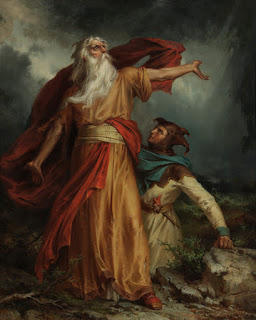Factors that lead to the tragic end of King Lear and Cordelia's life
.jpg)
1. Lear's Fatal Flaw: The Tragic Hubris of Authority King Lear's tragic end can be attributed, to a significant extent, to his fatal flaw — the unchecked hubris that accompanies absolute authority. Lear's decision to divide his kingdom based on flattery rather than genuine love exposes his misguided belief in his infallibility. The tragic consequences unfold as Lear loses both his kingdom and sanity, showcasing the destructive nature of his pride. 2. Cordelia's Virtue and its Consequences: The Irony of Innocence Cordelia's role in the tragedy is paradoxical. While her virtue and genuine love for Lear are evident, her refusal to indulge in flattery leads to her banishment. The irony lies in the purity of Cordelia's intentions contributing to the tragic chain of events. Her inability to conform to Lear's expectations sets the stage for her eventual demise, emphasizing the complex interplay between virtue and tragic consequences. 3. The Impact of Betrayal: Ma...
